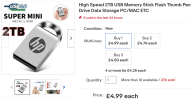Black Hole
May contain traces of nut
As I may have mentioned before, I am currently working on updating an elderly neighbour from her (now dead) ancient PC to an iPad (Air), which (she thinks) is just for email and a bit of web browsing, but no doubt will become more useful than that as time goes on. There are legacy files on the PC which I intend to transfer onto some kind of NAS that something like File Manager on the iPad will be able to access, view, and download if necessary.
I am in a quandary about a WiFi router. The old setup has a cable modem, which I intend to connect to the WAN port of a router. There are routers on Amazon from less than £20, but they all seem to have a fair proportion of negative reviews - and the last thing I need is an out-stationed unreliable router. On the other hand, I'm spending somebody else's money.
Then there is the question of the NAS. Routers at that end of the price bracket don't have USB ports for connecting an external hard drive (some claim to in the Amazon blurb, but when examined carefully it turns out they don't). On the other hand, actual NAS drives are a lot more expensive than a USB drive, so even if I have to spend more on the router to get that facility, there will be an economy made by including a USB drive rather than providing a self-contained NAS.
I don't have to buy from Amazon, but it would be convenient.
Recommendations?
I am in a quandary about a WiFi router. The old setup has a cable modem, which I intend to connect to the WAN port of a router. There are routers on Amazon from less than £20, but they all seem to have a fair proportion of negative reviews - and the last thing I need is an out-stationed unreliable router. On the other hand, I'm spending somebody else's money.
Then there is the question of the NAS. Routers at that end of the price bracket don't have USB ports for connecting an external hard drive (some claim to in the Amazon blurb, but when examined carefully it turns out they don't). On the other hand, actual NAS drives are a lot more expensive than a USB drive, so even if I have to spend more on the router to get that facility, there will be an economy made by including a USB drive rather than providing a self-contained NAS.
I don't have to buy from Amazon, but it would be convenient.
Recommendations?




